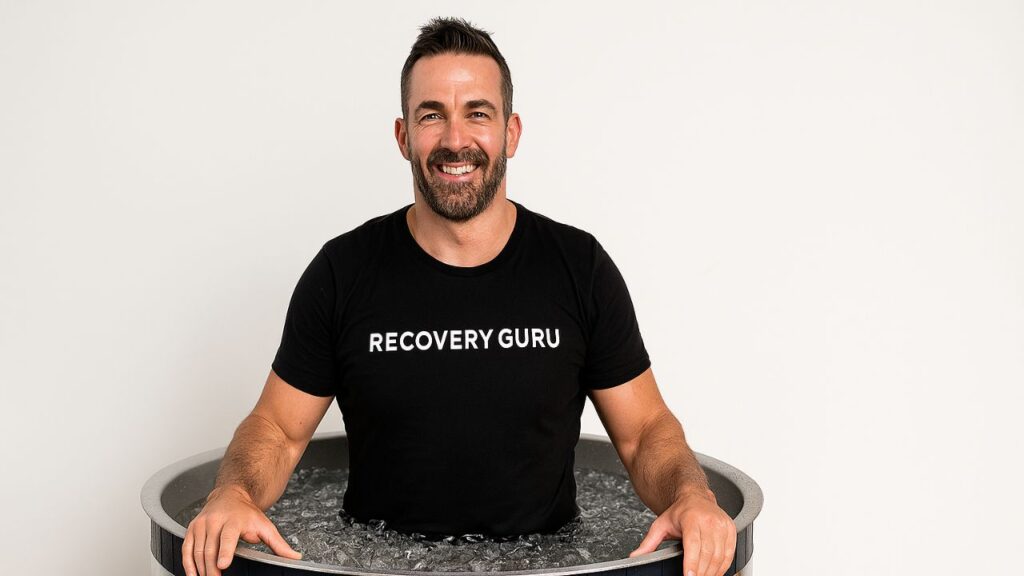Are Ice Baths Safe for Pregnant Women?
We include links to products we think are useful for our readers. If you click and buy a product through one of the affiliate links on this page, we may earn a small commission.

Product in the image: Odin Ice Bath Tub, use code RECOVERYGURU during purchase.
Ice baths have become very popular in recent years. Athletes and fitness fans love them for muscle recovery and reducing inflammation. But when it comes to pregnant women, it’s important to ask: Are ice baths safe?
Pregnancy changes a lot in a woman’s body. It’s important to know how ice baths might affect both the mother and the baby. This article will look into whether ice baths are a good idea for pregnant women.
Ice Baths Can Be Risky for Pregnant Women
Pregnancy changes a woman’s body in many ways. These changes can make ice baths risky. Here are some concerns:
Shock and Stress: Cold temperatures can be a shock to the body. This shock might be too much for a pregnant woman and her baby. The body’s response to cold can cause stress. When you take an ice bath, your body reacts by constricting blood vessels and increasing heart rate. This can put additional stress on the cardiovascular system, which is already working harder during pregnancy. This stress can be harmful to both the mother and the baby.
Blood Circulation: Pregnancy affects blood flow. An ice bath can make blood vessels tighten, which might reduce blood flow to important areas like the uterus. This can be risky for the baby. Proper blood circulation is crucial during pregnancy to ensure that the baby receives enough oxygen and nutrients. Reduced blood flow can lead to complications such as fetal growth restriction and other issues.
Body Temperature: It is important to keep a stable body temperature during pregnancy. Extreme cold can affect the body’s ability to regulate temperature, which might not be safe for the baby. The body’s core temperature needs to remain stable to provide a safe environment for the developing baby. Sudden changes in temperature can disrupt this balance and lead to potential complications.
Immune System: Pregnancy can affect the immune system, making it more vulnerable to infections. Cold temperatures can weaken the immune system further, increasing the risk of illness. This is another reason why ice baths might not be safe during pregnancy.
Potential for Hypothermia: Hypothermia is a condition where the body loses heat faster than it can produce, leading to dangerously low body temperatures. Ice baths can get dangerous even for athletes, and pregnant women are at a higher risk of hypothermia when exposed to extreme cold, as their bodies are already working hard to maintain a safe environment for the baby. Hypothermia can be life-threatening and can lead to serious complications for both the mother and the baby.
Doctors and experts usually advise against ice baths during pregnancy. According to the American College of Obstetricians and Gynecologists (ACOG), sudden temperature changes can be harmful during pregnancy whether hot or cold. It’s always best to talk to a healthcare provider before trying ice baths while pregnant. Medical experts emphasize the importance of avoiding extreme conditions during pregnancy to ensure the safety of both the mother and the baby.
However, if you insist on biohacking your way through 9 months of your pregnancy, red light therapy could be safe for use during pregnancy.
9 Alternative Safe Practices
If you’re pregnant and need muscle relief, there are safer options than ice baths. Here are a few:
Warm Baths: A warm bath can be very relaxing and can help with muscle aches. Make sure the water is not too hot. A comfortable warm temperature is best. Warm baths can help relax muscles and relieve tension without the risks associated with ice baths. Adding Epsom salts to the bath can also provide additional relief for sore muscles.
Prenatal Massage: Special massages for pregnant women can help with muscle pain and stress. Make sure to see a therapist who is trained in prenatal massage. Prenatal massages are designed to address the specific needs of pregnant women and can help reduce muscle tension, improve circulation, and promote relaxation. They are a safe and effective way to manage discomfort during pregnancy.
Gentle Exercise: Light exercises like walking, swimming, or prenatal yoga can keep muscles loose and reduce pain. Always check with your doctor before starting any new exercise. Gentle exercise can help improve flexibility, strength, and overall well-being during pregnancy. It can also help reduce stress and improve mood, which is beneficial for both the mother and the baby.
Stretching: Regular stretching can help maintain muscle flexibility and reduce the risk of muscle cramps and discomfort. Stretching exercises can be done safely at home and can help alleviate muscle tension. Focus on gentle, slow stretches and avoid any movements that cause pain or discomfort.
Hydration: Staying well-hydrated is important during pregnancy, especially when engaging in physical activity. Proper hydration helps maintain muscle function and reduces the risk of cramps. Drinking plenty of water can also help flush out toxins from the body and support overall health.
Use of Heat Packs: Heat packs or warm compresses can be applied to sore muscles to provide relief. Make sure the heat pack is not too hot and avoid applying it directly to the abdomen. Heat packs can help increase blood flow to the affected area and reduce muscle tension.
Rest and Recovery: Adequate rest is essential during pregnancy. Make sure to get enough sleep and allow your body to recover after physical activity. Resting can help reduce muscle soreness and prevent overexertion.
Nutrition: Eating a balanced diet with plenty of nutrients can help support muscle health and overall well-being during pregnancy. Ensure you are getting enough protein, vitamins, and minerals to support your body’s needs.
However, always consult with a healthcare provider before trying any new treatments or practices during pregnancy. Healthcare providers can provide personalized advice based on your specific needs and medical history. They can also help identify any potential risks and recommend safe alternatives.
Conclusion
Ice baths have many benefits for muscle recovery and reducing inflammation. But during pregnancy, they can be risky. The shock from cold, changes in blood circulation, and potential impacts on body temperature are concerns. There are safer alternatives like warm baths, prenatal massages, and gentle exercises. Always consult with a healthcare provider before trying anything new during pregnancy.
The best approach is to stay safe and choose methods that are known to be safe for both the mother and the baby.





